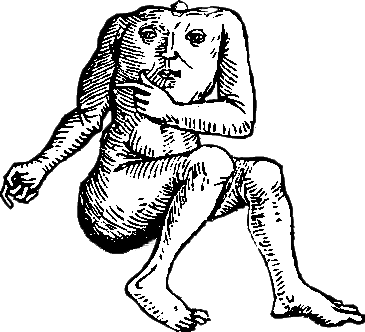ALICIA KENNEDY ON THE DEAD LADIES PROJECT BY JESSA CRISPIN
“Let’s say, for a moment, that the character of a city has an effect on its inhabitants, and that it sets the frequency on which it calls out to the migratory. People who are tuned a certain way will heed the call almost without knowing why. Thinking they’ve chosen this city, they’ll never know that the city chose them. “
In her travel memoir framed around the works of William James, Nora Barnacle, Claude Cahun, amongst others, Jessa Crispin is seeking a fresh start. Interweaving literary analysis, biography, and personal experience, the ouevres and lives of these artists guide Crispin and help her figure out how to live a life.
People forget that leaving is an option, that home isn’t necessarily one place. New York was the place I always believed was home, even as I left it more and more frequently, and even as I’d often find myself on my own couch saying, “I want to go home.” I never thought leaving was possible, until the need to do so swelled in me to such a boil that I would have lost my mind by staying. I imagined at least six months of travel, with likely interludes back on Long Island on my mother’s couch. It would be a fruitful time of writing, of self-discovery. The model in my mind was the one presented in Jessa Crispin’s memoir The Dead Ladies Project: Exile, Expats, & Ex-Countries. She too took off when it became obvious nothing in her life was right, when the whisper became a scream. Anyway, I left but then just settled right again. The book continues its influence over me, though—just in a different way than I’d imagined. It’s the voice I’m after.
Crispin, once the founder and editor of Bookslut, manages a very specific tone: well-read, but not snobbish; judgy, but vulnerable. It’s an honest voice, a conversational voice despite its learnedness, a voice that doesn’t have a home on the internet anymore, which is probably why the book remains such an antidote to my screen-burned eyes. It came out in 2015, and I bought it a couple of years later, during a year of intense travel that I hoped would cure me of an existential itch (all it did was drain my bank accounts and distract me, leading to the ultimate aforementioned boil). I enjoyed Crispin’s criticism and liked that I felt lightly indicted by her at times. She once wrote or tweeted—who can recall the difference anymore—that writers were afraid to take on various jobs, expecting to live off writing alone. That might have been why I spent ten-odd months bartending—that comment and desperate financial need.
With that first read, she gave me a model for traveling that I take quite seriously. I read the work of writers from the place where I’m going; I try to see the movies; I always listen to the songs. It’s a cultural immersion that helps the solitary mind orient itself. The only issues I run into tend to be linguistic. I tense up when I have to think in Spanish; I know no French at all. When Crispin writes that she is mortified when spoken to in German she can’t understand but enjoys being able to tune out conversation, I know precisely how she feels while also knowing it’s indefensible American crap. But anyone with a working-class chip on their shoulder who didn’t fuck off to study abroad because they had to keep working probably recognizes it as the justification of a person who’s intellectual enough to have read all these books but still can’t get over the hump of being monolingual. It feels like a curse. The mark of someone who will never reach the heights they know they could if they were born into a different family, even if those heights are a capitalist illusion.
And Crispin speaks of money, of class, of women who took husbands because it would be their only way to see the world with honesty that doesn’t always present itself in travel memoirs, because by design, travel is the realm of those with free time and ample cash. She recognizes privilege, as well, talking about how she’s been welcomed into Sweden and Switzerland because she is white and looks so deeply European. “When I travel through Europe, my face reads as Here,” she says. “Here is assumed. Then I open my mouth and out comes discordance and no one knows where to put me.”
All throughout the travels we follow in the book—both literally and through time, in her reading—we are also following her affair with a married man who’s mid-divorce by the end. She torments herself with this, a banal human weakness for romance and love, yet for me it always reads as such a B-plot. It is a throughline but it is not the point; the point is the reading, the feeling of being alien, the constant unease that comes with never knowing whether you’re supposed to be showing your passport to the official or if they need some other document or currency. An affair? Who cares. It is the background to an intellectual life, this fucking and loving. “I went out looking for a home, I found the world instead,” she writes.
And that’s what’s really radical here: Crispin, a heterosexual woman, makes the man beside the point of her quest. Like leaving what had long been assumed to be home, it’s one of those things we always forget is possible.

